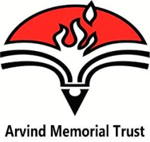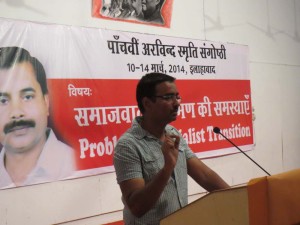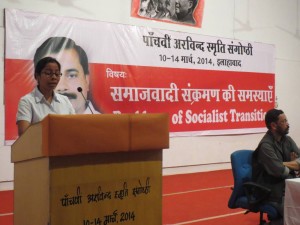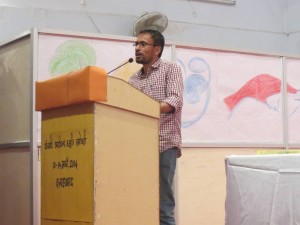Second Day of Fifth Arvind Memorial Seminar
Allahabad, 11 March. Three important papers were presented followed by a lively discussion at the ongoing second day of the Fifth Arvind Memorial Seminar on “Problems of Socialist Revolution” at Vigyan Parishad auditorium here. In the first session of the day the editor of the Punjabi journal Pratibaddh, Sukhwinder , presented a paper titled “The Building of Socialism in China, Great Proletariat Cultural Revolution and Maoism.” The paper gave a stage-wise description of the experiments of building socialism in Mao’s China and delineated the world-historical contribution of the Great Proletariat Cultural Revolution.
The paper provided a detailed description of the two line struggle that were waged at different stages on different issues form the New Democratic Revolution in China in 1949 until the death of Mao Tse-tung in 1976. Immediately after the New Democratic Revolution in China feudal exploitation was uprooted and in the middle of 1950s through the ‘Great Leap Forward’ the process of Socialist construction was started. The transition from cooperative farming to collective farming was started and there was also a transition towards socialist production relations in industry and commerce. The paper investigated in great detail the continuing struggle within the society and party which the Chinese party had to face as a result of the steps that it had to take during the entire process. The paper also discussed the critical analysis of Mao on the socialist experiments in Soviet Union. Also, the paper discussed the historical importance of the “Great Debate” during the period of Khruschevite revisionism. The paper placed a great emphasis on the theoretical and practical aspects of the Great Proletariat Cultural Revolution under the leadership of Mao in the 1960s and 1970s. After the introduction of Marxism, Lenin made a qualitative augmentation of this ideology in the era of imperialism and as a result it was called Marxism-Leninism. The paper stated that Mao gave the theory of continuous revolution in the realm of superstructure during the long period of socialist transition to prevent capitalist restoration. Considering its universal importance it is much accurate to call the Marxist science in the present era as Marxism-Leninism-Maoism instead of Marxism-Leninism-Mao Tse-tung Thought.
The second paper was centered on an ideological revaluation after half a century of the historical document on the General Line for International Communist Movement. This paper delineated the ideological importance of the “Great Debate” that the Chinese party conducted against Khruschevite revisionism. The paper also discussed the irrelevance of the ‘General Line’ of 1963 keeping in mind the changes in production relations in the countries of Third World like India. It also expressed astonishment at the fact that there are several revolutionary organizations in India which have stuck dogmatically to this programme and are confusing the question of programme with the question of ideology. This paper was presented by Lata, a student from Jawahar Lal Nehru University.
The title of the third paper was “Stalin and Soviet Socialism” which was presented by Dr. Amrit from
Ludhiana. The paper refuted with facts and logic the false charges levelled on Stalin by imperialists, trotskysts and “free-thinking Marxists.”The paper unravelled the lies surrounding the Brest-Litovst Treaty and the role of Stalin during the civial war, “Lenin’s last testamant”, the debate surrounding the socialism within one country, steps that the party under the leadershp of Stalin took during collectivization and elimination of the Kulaks as a class, the trials of 1936-38 and the purging process, the distortion of Soviet-German pact during the Second World War and the oppression of scientists. The paper mentioned some interesting anecdotes about the promotion of science in Soviet Union during the Stalin period. The paper also provided a documentary chronology of the struggle that Stalin conducted against bureaucracy within the party and for democracy. The paper also delineated some serious ideological mistakes of the Stalin period.
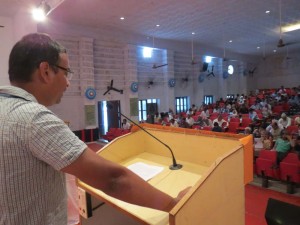 The papers were followed by a discussion. Principal among those who intervened were Ramashish Gupta and Raghunath Prasad from Bihar, Babban Thoke and Dattu from Aurangabad, P L Shakun from Jaipur, Laljit, Daljit and Navkaran from Ludhiana, Sandeep from Sangrur, Sunny, Tapish and Abhinav from Delhi and Deepti Gopinath from Mumbai. Ramashish Gupta from Bhojpur made the point that it is a matter of courage to speak about the mistakes committed by the great teachers of the pastbut we have to find a way forward after learning from these mistakes. He said that if the Communist International was not dissolved then it would have been easier to answer the attacks on Marxism. As a reply, Sukhwinder said that he Comintern was not dissolved as a result of individualism of any leader but with the agreement between Russian and Chinese party along with all the communist parties. The form of the then Comintern was not in sync with the new situations but if there was a Comintern in a new form then definitely it would have been a great situation for the struggle against new revisionism and for the propaganda of Marxism. There is a great need for such a platform.Deepti Gopinath of Airport Workers Union, Mumbai said that the imperialists attack Stalin the most because he is the defining line between revolutionary Marxism and revisionism. We should defend him spiritedly. In this context she especially mentioned the book Another View of Stalin by Ludo Martins, Secretary, Communist Party of Belgium. Abhinav in his critique of “new synthesis” proposed by RCP, USA said that Bob Avakian talks about reductionism in Marxism since the period of Marx and locates this mechanistic deviation in the formulation of “negation of negation” which Avakian dismisses. Avakian talks about revolution in imperialist countries without the breaking of the weak links in the era of imperialism, though, this analysis is not in sync with the contemporary situation. His formulations on nationalist deviation and treating of intellectuals in Russial and Chinese revolution cannot be accepted too. Prima facie the things that are correct in his formulations are not novel and what is novel in them is not correct. His concept of absolute truth is non-dialectical.
The papers were followed by a discussion. Principal among those who intervened were Ramashish Gupta and Raghunath Prasad from Bihar, Babban Thoke and Dattu from Aurangabad, P L Shakun from Jaipur, Laljit, Daljit and Navkaran from Ludhiana, Sandeep from Sangrur, Sunny, Tapish and Abhinav from Delhi and Deepti Gopinath from Mumbai. Ramashish Gupta from Bhojpur made the point that it is a matter of courage to speak about the mistakes committed by the great teachers of the pastbut we have to find a way forward after learning from these mistakes. He said that if the Communist International was not dissolved then it would have been easier to answer the attacks on Marxism. As a reply, Sukhwinder said that he Comintern was not dissolved as a result of individualism of any leader but with the agreement between Russian and Chinese party along with all the communist parties. The form of the then Comintern was not in sync with the new situations but if there was a Comintern in a new form then definitely it would have been a great situation for the struggle against new revisionism and for the propaganda of Marxism. There is a great need for such a platform.Deepti Gopinath of Airport Workers Union, Mumbai said that the imperialists attack Stalin the most because he is the defining line between revolutionary Marxism and revisionism. We should defend him spiritedly. In this context she especially mentioned the book Another View of Stalin by Ludo Martins, Secretary, Communist Party of Belgium. Abhinav in his critique of “new synthesis” proposed by RCP, USA said that Bob Avakian talks about reductionism in Marxism since the period of Marx and locates this mechanistic deviation in the formulation of “negation of negation” which Avakian dismisses. Avakian talks about revolution in imperialist countries without the breaking of the weak links in the era of imperialism, though, this analysis is not in sync with the contemporary situation. His formulations on nationalist deviation and treating of intellectuals in Russial and Chinese revolution cannot be accepted too. Prima facie the things that are correct in his formulations are not novel and what is novel in them is not correct. His concept of absolute truth is non-dialectical.
The sessions were chaired by Harsh Thakore from Mumbai, Debashish Barat from Patna and poet and social activist Katyayani. Like the first day of the seminar the discussions continued well into the night and in the coming three days too there would be papers and discussions relating to socialist transition and contemporary situation in Nepal, Venezuela, Cuba and others. Papers tomorrow will be centered on the Neplai revolution.
